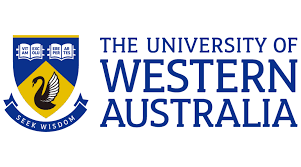University of Western Australia: Rural UWA physiotherapist and researcher awarded prestigious fellowship
Longstanding rural clinician and leading researcher at The University of Western Australia’s WA Centre for Rural Health, Dr Ivan Lin, has been named a fellow by the Australian College of Physiotherapists.
The fellowship makes Dr Lin, a long-time Geraldton resident, one of only two specialist musculoskeletal physiotherapists in country Western Australia and the only one based north of Perth.
“I was thrilled to get the news – it was a bit of a nervous wait after sitting the fellowship exams a number of weeks ago,” Dr Lin said. “Being a fellow not only advances my training and qualifications, but it feeds into my research which is wonderful.”
The Australian College of Physiotherapists is the pre-eminent professional body representing specialist physiotherapists in Australasia, with fellowships awarded to those at the pinnacle of their profession.
As well as his role as a senior lecturer at the WA Centre for Rural Health, Dr Lin, who has been a physiotherapist for more than 25 years, practises at the Geraldton Regional Aboriginal Medical Service.
Well known for his research on improving the management of musculoskeletal pain, particularly for Aboriginal patients, he believes it is an area that doesn’t receive enough attention or recognition.
“Musculoskeletal issues, such as lower back pain, osteoarthritis and neck, shoulder and knee pain, are the number one cause of disability in Australia, affecting more than a quarter of all Australians.
“This burden is higher amongst Aboriginal Australians, a fact which receives too little recognition,” Dr Lin said.
“While it makes sense to direct resources towards life-threatening health conditions such as diabetes and heart disease, musculoskeletal pain causes substantial disability and suffering and is often present alongside other long-term health conditions.
Dr Ivan Lin
“While it makes sense to direct resources towards life-threatening health conditions such as diabetes and heart disease, musculoskeletal pain causes substantial disability and suffering and is often present alongside other long-term health conditions.
“It can also prevent people from managing their other health issues. For example, a person who has heart issues may not be able to exercise if they have a painful back or a stiff, arthritic knee.”
The father of three is also passionate about improving the Aboriginal patient experience and reducing health disparities in rural communities, and with UWA colleagues Charmaine Green and Professor Dawn Bessarab, developed Clinical Yarning, a new model of clinical communication in Aboriginal health care.
“Clinical yarning is a patient-centred approach that marries Aboriginal cultural communication preferences with biomedical understandings of health and disease. It’s patient friendly and we’ve seen great results in the areas we’ve used it so far,” Dr Lin said.
“Given the potential it has to improve relationships and outcomes for Aboriginal patients and also practitioners, it’s something we’d like to see implemented across a broader project area.”

